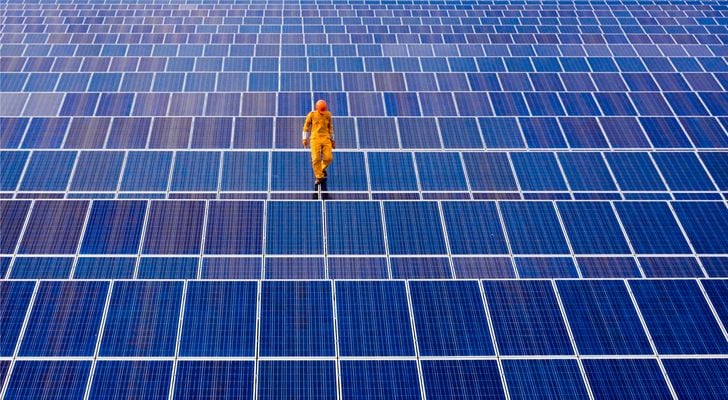Many solar stocks rallied this week after Daqo New Energy (NYSE: DQ), a Chinese company that makes polysilicon used to develop solar modules, reported much stronger than expected results. Importantly, Daqo also clarified that, contrary to the expectations of many, global solar energy demand is not collapsing. Despite the recent rally in solar energy stocks, many of the names in the sector, including JinkoSolar (NYSE: JKS), Daqo, SunPower (NASDAQ: SPWR), and SolarEdge (NASDAQ: SEDG), remain extremely undervalued. Given the multiple positive upcoming catalysts for the solar energy sector, investors should buy those solar stocks.
Daqo’s Results Beat Expectations
On Tuesday, Daqo reported second-quarter earnings per share of $1.36, well above the Zack’s Consensus Estimate of 94 cents per share and above the earnings per share of $1.29 that the company reported in the same period a year earlier. Daqo’s Q2 revenue came in at $67 million, surpassing the consensus outlook by 7%. Meanwhile, reiterating a statement it made on July 13, Daqo noted that demand for its polysilicon had fallen in June, immediately after China decided to cut some subsidies for solar energy. But the company, echoing its July statement, stated that “demand returned in early July,” adding that “demand gradually recover (ed) last month.”
Daqo’s Comments Are Bullish for Solar Stocks
Daqo cited strong demand for solar energy outside of China as the main catalyst for the rebound. Specifically, demand is growing in Latin America, India, the Middle East, Europe and the U.S., Daqo stated. Furthermore, Daqo predicted that, driven by continued price declines, global solar installations could rise to 120-140 gigawatts in 2019 and 140-160 gigawatts in 2020, up from 95-105 gigawatts this year.
Meanwhile, the outlook for solar energy demand in China is being underestimated by many, Daqo reported. Demand for solar energy will be strong there because of the declining cost of solar modules in the country, the company explained.
Daqo Corroborated JinkoSolar’s Statements
Daqo’s comments echo statements made on June 26 by leading Chinese solar module maker JinkoSolar, which I reported in my previous column. Specifically, I wrote:
“The company reported that the subsidy cut will lower the cost of raw materials used to make solar panels in China. As a result, JinkoSolar reported, solar energy will achieve grid parity in many places in the country in the second half of 2019.”
Grid parity refers to a situation in which alternative energy is as cheap or cheaper than fossil fuels. Daqo’s comments suggest that grid parity in China, along with increasing demand for solar energy elsewhere on the planet and grid parity in other countries, are going to greatly boost demand for the energy,
Additionally, Daqo noted that the cost of polysilicon is dropping, coming down from the elevated price levels that it had reached last year and early in 2018. The decline will actually help the makers of solar energy products like JinkoSolar and SunPower.
Other Catalysts for Solar Stocks
Finally, as I’ve reported in the past, there are many other strong, positive, upcoming catalysts for solar energy. Among these are Saudi Arabia’s stated intention to invest $200 billion in solar energy, California’s mandate that most new homes built after 2020 include solar energy systems, renewable energy mandates being passed by other U.S. states, increased electric demand triggered by electric cars, and much cheaper battery systems that will make solar energy meaningfully more affordable for electric utilities.
Solar Stocks’ Valuations
JinkoSolar is trading at a forward price-earnings ratio of 8 and a price-to-sales ratio of around 0.16. SunPower has a price to sales ratio of 0.5, while Daqo has a forward price-earnings ratio of 8.5 and SolarEdge, whose net income surged 33% last year, is trading at a forward multiple of 13.5. These solar stocks are priced as though their results are set to plummet. But, as we’ve shown, the opposite is true. Consequently, it definitely makes sense to buy these solar stocks at current levels.
As of this writing, Larry Ramer owned shares of all of the companies named in this column.

